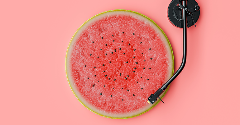News
Nestlé contemplates divestiture of North American Waters division
19 Jun 2020Nestlé announced last week that it is considering selling the majority of its North American Nestlé Waters business unit. The Swiss company said it would retain its international brands Perrier, S.Pellegrino and Acqua Panna and will sell regional brands, including Poland Spring, Deer Park, Ozarka, Ice Mountain, Zephyrhills and Arrowhead.
In addition to selling a large portion of its North American portfolio, the company said it will be looking to invest in the functional water category with a focus on health-enhancing ingredients.

Water has struggled as a category for Nestlé in recent years. Although bottled water remains a popular beverage in the United States, concerns about the sustainability of plastic and rising transportation costs have stagnated growth in this category. To try and turn the financial situation of its bottled water business around, Nestlé launched regional sparkling water products in North America in 2018. However, that one-off effort did not result in a significant upward shift in revenue. Private-label water, Coca-Cola and PepsiCo have continued to grab market share away from Nestlé, reported Barron’s.
But Nestlé has not given up on restoring the prominence of its waters business. In October, the Swiss company relinquished centralized control in favor of regionally-managing its North American business unit in an effort to become more responsive to local trends. Two months after this shift in management, the company announced the release of two new functional water lines in 2020: Poland Spring energy water and Nestlé Pure Life Plus.
Still, it appears that a bigger change than last fall’s overhaul is required to turn around the North American Waters business unit. While Nestlé has not confirmed a sale of this portion of its business, it did confirm that there is an effort to explore strategic acquisitions to grow its market share in the category.
"The creation of a more focused business enables us to more aggressively pursue emerging consumer trends, such as functional water,” said Nestlé CEO Mark Schneider in a statement. “This strategy offers the best opportunity for long-term profitable growth in the category, while appealing to environmentally and health-conscious consumers.”
Nestlé’s CEO has been notable for his acquisition and divestiture strategy over the last three years. Schneider has worked to aggressively reposition the company’s entire portfolio to focus on fast-growing segments like plant-based protein and coffee while shedding slow-growth segments like ice cream and Buitoni pasta. Additionally, the company has been looking into bringing functional products into the fold as can be seen with its recent acquisition of Vital Proteins, a food and drink producer focused on collagen-infused products.
Since water makes up about 8% of Nestlé's overall sales and less than 5% of profit, according to Jefferies data highlighted by The Wall Street Journal, finding a way to reinvigorate consumer interest in the category could have substantial effects on Nestlé’s bottom line.
Related news

Retail landscape lacks nutritious and affordable food, says ATNi
30 Dec 2025
A rapid increase in modern food retail has given retailers growing influence over consumer diets, according to global non-profit ATNi’s latest assessment.
Read more
Debate over ban on ‘meaty’ names for plant-based products reaches stalemate
26 Dec 2025
The debate over a ban on plant-based products using “meaty” terms has reached a stalemate, leaving manufacturers in limbo and still facing overhauls to their marketing and packaging.
Read more
Multi-sensory food and drink products to gain traction in 2026
16 Dec 2025
Trend forecasters predict that sensory elements will play a larger role, helping food and beverage brands differentiate themselves in a competitive market in 2026.
Read more
Big appetite for M&A between European and US food and drink companies
3 Dec 2025
Persistent tariffs on EU food and beverage exports have helped drive record levels of M&A activity between European and US companies this year, according to analysis by ING.
Read more
Non-UPF Program extends certification scheme to entire food industry
30 Nov 2025
The Non-UPF Program has extended its certification scheme to the wider food sector, championing a move towards healthier consumption habits.
Read more
Lancet study links UPFs to chronic disease risk
26 Nov 2025
UPFs are consistently associated with an increased risk of diet-related chronic diseases, according to a comprehensive review of global evidence in The Lancet .
Read more
Concerns swirl around cinnamon’s compliance with EU law
25 Nov 2025
Cinnamon may be a top functional ingredient, but it needs stronger protocols to ensure it meets EU food safety laws and quality standards, say researchers.
Read more
Oat Barista: Innovation for game-changing beverages
20 Nov 2025
Oat Barista is a clean label, sustainable, and innovative drink base specifically designed to create the perfect foam in one single ingredient.
Read more
How younger consumers are redefining ingredient choices and rejecting brand loyalty
18 Nov 2025
Gen Z and millennial consumers’ preferences for transparency, functionality, and purpose are “redefining the very nature of consumption itself”, says SPINS.
Read more
Hybrid formats and flexible positioning to disrupt category norms in 2026
17 Nov 2025
Trend forecasters expect food and drink to move more fluidly across occasions, functions, and formats as consumers seek versatility, novelty, and convenience.
Read more